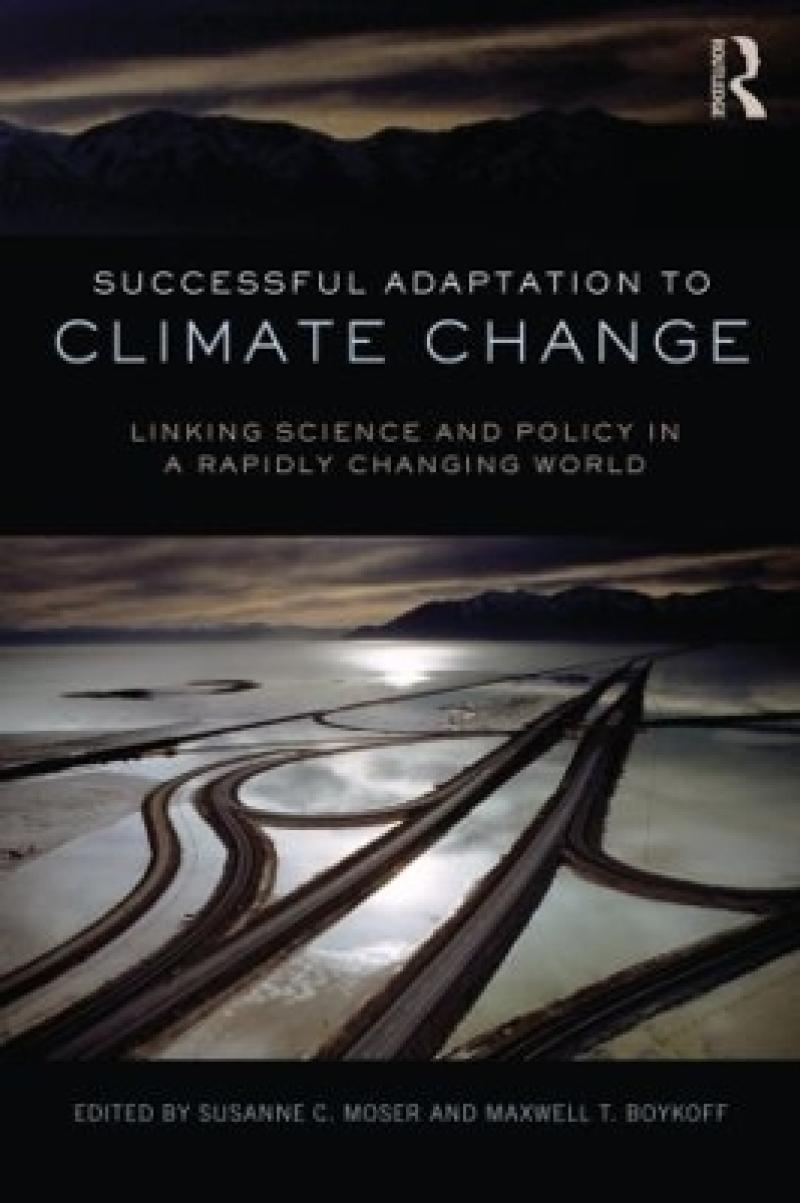What does successful adaptation look like? This is a question we are frequently asked by planners, policy makers and other professionals charged with the task of developing and implementing adaptation strategies. While adaptation is increasingly recognized as an important climate risk management strategy, and on-the-ground adaptation planning activity is becoming more common-place, there is no clear guidance as to what success would look like, what to aim for and how to judge progress.This edited volume makes significant progress toward unpacking the question of successful adaptation, offering both scientifically informed and practice-relevant answers from various sectors and regions of the world. It brings together 18 chapters from leading experts within the field to present careful analyses of different cases and situations, questioning throughout commonly avowed truisms and unspoken assumptions that have pervaded climate adaptation science and practice to date. This book offers not one answer but demonstrates how the question of success in important ways is normative and context specific. It identifies the various dimensions of success, such as economic, political, institutional, ecological, and social, explores the tensions between them, and compiles encouraging evidence that resolutions can be found. The book appraises how climatic and non-climatic stressors play a role, what role science does and can play in adaptation decision making, and how trade-offs and other concerns and priorities shape adaptation planning and implementation on the ground.This is timely interdisciplinary text sheds light on key issues that arise in on-the-ground adaptation to climate change. It bridges the gap between science and practical application of successful adaptation strategies and will be of interest to both students, academics and practitioners.
Les mer
1. Climate Change and Adaptation Success: The Scope of the Challenge Section I: Changing Goals, Trade-offs and Synergies 2. Reducing the Risk of Maladaptation in Response to Sea-Level Rise and Urban Water Scarcity 3. Biodiversity Conservation for a Climate-Altered Future 4. Climate Adaptation, Moral Reparation, and the Baseline Problem 5. REDD+ and Social Justice: Adaptation by Way of Mitigation? Section II: Institutional Arrangements, Interplay and Alignment 6. Institutions as Key Element to Successful Adaptation Processes: Results from the San Francisco Bay Area 7. Rapid Transformation of the Us Electric Power System: Prospects and Impediments 8. Towards a Binding Adaptation Regime: Three Levers and Instruments Section III: Science-Practice Interactions, Decision Support and Supporting Norms 9. Waters, Seas and Wine: Science for Successful Climate Adaptation 10. Promoting Adaptation Success in Natural Resource Management Through Decision Support: Lessons from the Great Plains and Rocky Mountain Regions 11. Climate Risk Management: Laying the Groundwork for Successful Adaptation 12. Building Climate Resilience: Lessons of Early Warning in Africa 13. Engaging Science and Managing Scientific Uncertainty in Urban Climate Adaptation Planning Section IV: Effective Communication and Engagement 14. Media Coverage of Discourse on Adaptation: Competing Visions of "Success" in the Indian Context 15. Risk Communication and Adaptation in Settlements on the Coast and Deltas of the Mekong Region 16. Climate Change Visioning: Effective Processes for Advancing the Policy and Practice of Local Adaptation Section V: Motivations, Identities, Reflexivity and Personal Change 17. Navigating the Political and Emotional Terrain of Adaptation: Community Engagement When Climate Change Comes Home 18. The Courage to Change: Adaptation from the Inside-Out
Les mer
"This is a thoughtful and thought-provoking volume, with surprising insights. Of the many books on climate change, this one really hits on the essentials of "What are we going to do about it?" and "Why haven't we done anything yet?" ... This work will make readers think and realize that although addressing climate change is complicated, achieving workable solutions is even more complicated. Well-written and engaging reading for both social and physical scientists working on or interested in climate change or associated issues. Summing Up: Highly recommended. Upper-division undergraduates through professionals/practitioners; general audiences." - B. Ransom, formerly University of California, San Diego, in CHOICE, June 2014"This is a great book. It demonstrates clearly that success is contingent on getting the rules, incentives and attitudes right. The book engages in all the right ways: with evidence, rigour, reflexivity, and a sense of geography and the lived reality of climate change." Professor Neil Adger, University of Exeter, UK."City leaders are searching for solutions to the massive economic, infrastructure, and health challenges arising from climate change. What they need are solutions that strengthen their communities' resilience - their ability to recover and bounce back from extreme weather. Susanne C. Moser and Maxwell T. Boykoff offer a critical resource with the contribution of Successful Adaptation to Climate Change." Michael Schmitz, Executive Director, ICLEI–Local Governments for Sustainability USA."Perhaps the most striking take away for many readers is the conclusion that—as explicitly stated by Lisa Dilling and Rebecca Romsdahl in their chapter on 'Promoting adaptation success in natural resource management through decision support'—investing in people and effective institutions is likely to be as important to successful adaptation as investing in scientific data and technical tools." Danya Rumore, Massachusetts Institute of Technology, Anthem EnviroExperts Review, USA
Les mer
Produktdetaljer
ISBN
9780415525008
Publisert
2013-06-07
Utgiver
Vendor
Routledge
Vekt
670 gr
Høyde
234 mm
Bredde
156 mm
Aldersnivå
U, P, 05, 06
Språk
Product language
Engelsk
Format
Product format
Heftet
Antall sider
360
Biographical note
Susanne C. Moser is Director of Susanne Moser Research & Consulting and a Social Science Research Fellow at Stanford’s Woods Institute for the Environment. She is an internationally recognized expert on adaptation, vulnerability, and resilience; climate change communication for social change; and science--policy interactions.
Maxwell T. Boykoff is an Assistant Professor and Fellow in the Cooperative Institute for Research in Environmental Sciences (CIRES) and Environmental Studies at the University of Colorado. Max also is a Senior Visiting Research Associate in the Environmental Change Institute at the University of Oxford.
